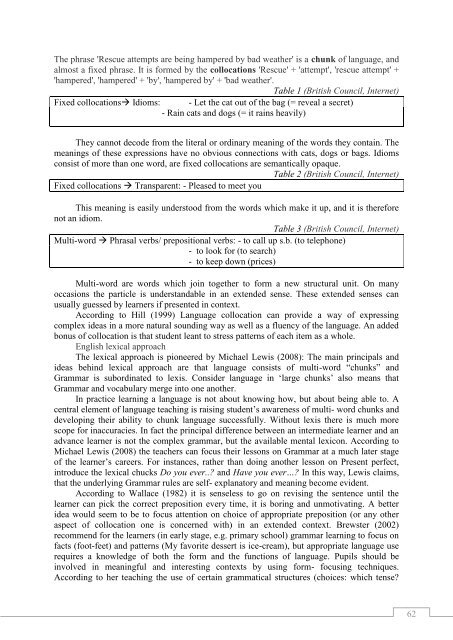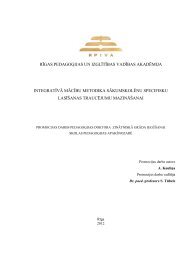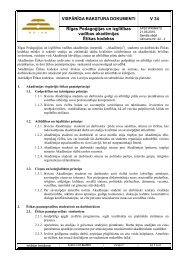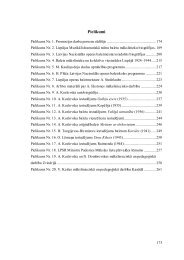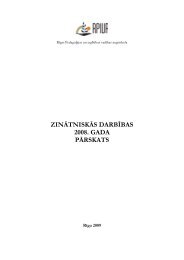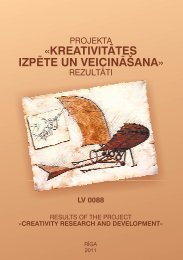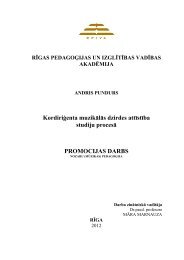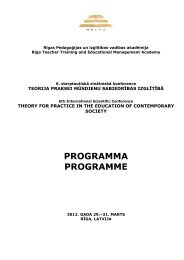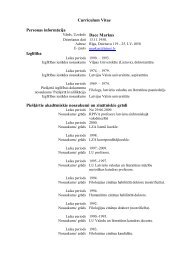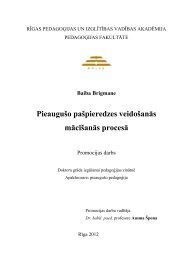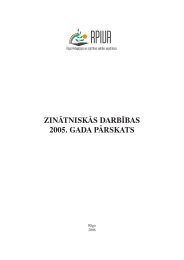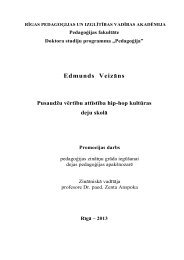Create successful ePaper yourself
Turn your PDF publications into a flip-book with our unique Google optimized e-Paper software.
The phrase 'Rescue attempts are being hampered by bad weather' is a chunk of language, andalmost a fixed phrase. It is formed by the collocations 'Rescue' + 'attempt', 'rescue attempt' +'hampered', 'hampered' + 'by', 'hampered by' + 'bad weather'.Table 1 (British Council, Internet)Fixed collocations Idioms: - Let the cat out of the bag (= reveal a secret)- Rain cats and dogs (= it rains heavily)They cannot decode from the literal or ordinary meaning of the words they contain. Themeanings of these expressions have no obvious connections with cats, dogs or bags. Idiomsconsist of more than one word, are fixed collocations are semantically opaque.Table 2 (British Council, Internet)Fixed collocations Transparent: - Pleased to meet youThis meaning is easily understood from the words which make it up, and it is thereforenot an idiom.Table 3 (British Council, Internet)Multi-word Phrasal verbs/ prepositional verbs: - to call up s.b. (to telephone)- to look for (to search)- to keep down (prices)Multi-word are words which join together to form a new structural unit. On manyoccasions the particle is understandable in an extended sense. These extended senses canusually guessed by learners if presented in context.According to Hill (1999) Language collocation can provide a way of expressingcomplex ideas in a more natural sounding way as well as a fluency of the language. An addedbonus of collocation is that student leant to stress patterns of each item as a whole.English lexical approachThe lexical approach is pioneered by Michael Lewis (2008): The main principals andideas behind lexical approach are that language consists of multi-word ―chunks‖ andGrammar is subordinated to lexis. Consider language in ‗large chunks‘ also means thatGrammar and vocabulary merge into one another.In practice learning a language is not about knowing how, but about being able to. Acentral element of language teaching is raising student‘s awareness of multi- word chunks anddeveloping their ability to chunk language successfully. Without lexis there is much morescope for inaccuracies. In fact the principal difference between an intermediate learner and anadvance learner is not the complex grammar, but the available mental lexicon. According toMichael Lewis (2008) the teachers can focus their lessons on Grammar at a much later stageof the learner‘s careers. For instances, rather than doing another lesson on Present perfect,introduce the lexical chucks Do you ever..? and Have you ever…? In this way, Lewis claims,that the underlying Grammar rules are self- explanatory and meaning become evident.According to Wallace (1982) it is senseless to go on revising the sentence until thelearner can pick the correct preposition every time, it is boring and unmotivating. A betteridea would seem to be to focus attention on choice of appropriate preposition (or any otheraspect of collocation one is concerned with) in an extended context. Brewster (2002)recommend for the learners (in early stage, e.g. primary school) grammar learning to focus onfacts (foot-feet) and patterns (My favorite dessert is ice-cream), but appropriate language userequires a knowledge of both the form and the functions of language. Pupils should beinvolved in meaningful and interesting contexts by using form- focusing techniques.According to her teaching the use of certain grammatical structures (choices: which tense?62


